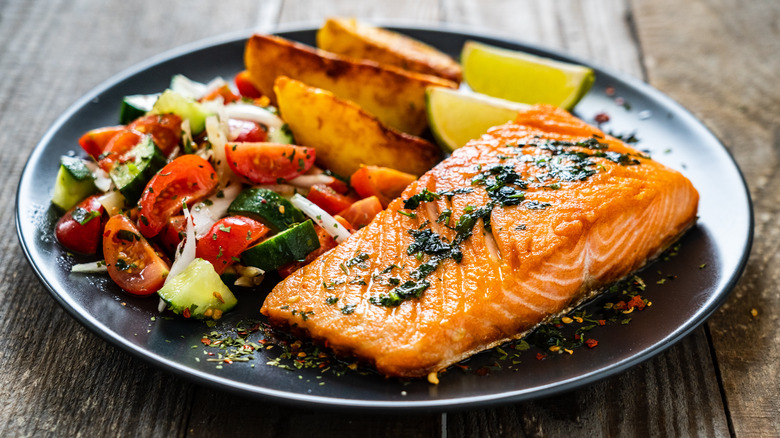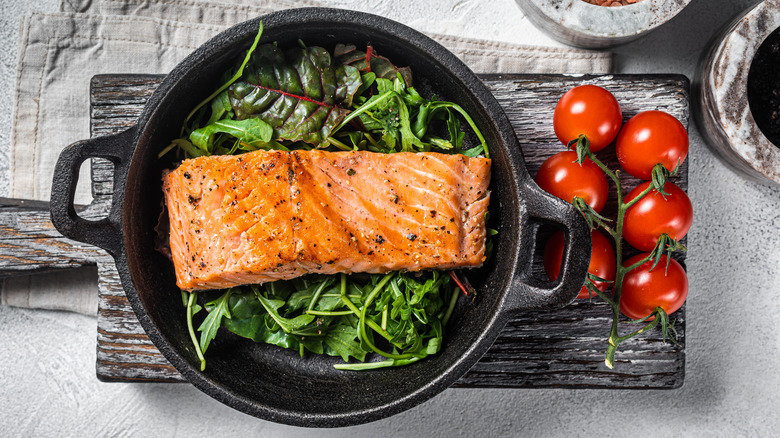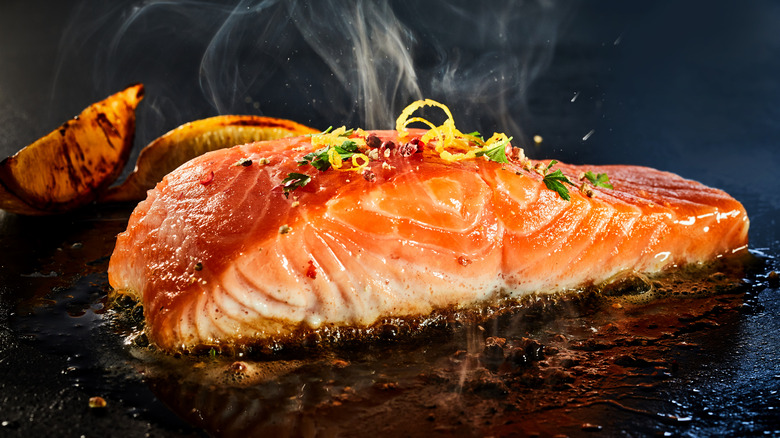The Science Behind That White Stuff Oozing Out Of Your Salmon
Salmon is a versatile fish that can be prepared plenty of ways. Smoked salmon, known as lox, makes a great addition to any brunch party and pairs perfectly with cream cheese and capers on a bagel. Grilled salmon is often served as an entrée; preparing it on a cedar plank infuses a smokiness that brings out its flavor. And, of course, salmon is popular in sushi, such as in Philly or Alaskan rolls.
But if you've ever cooked salmon, whether on the grill or in the oven, you might have noticed that the cooked version often oozes a white gel that hovers between a liquid and a solid. To put it simply, it's not harmful. It's a protein found naturally in salmon that solidifies when the salmon is cooked, which explains why you see it when you pull your dish out of the oven.
There's science behind this, and there are a few ways you can (mostly) avoid this unappealing look.
Why does our salmon ooze white stuff?
Salmon is a high-protein food. One of these types of proteins, known as albumin, is found in liquid form naturally in the fish. When you view a piece of salmon at the fish market, you won't notice any interesting white ooze; it certainly looks more appealing without it. However, once you start to bake or grill that salmon, the albumin slowly turns from a liquid to a solid.
Plus, as salmon cooks, its muscle fibers contract; you've probably noticed your fillet is slightly smaller when cooked. As a result, the albumin rises to the surface of the fish, which turns into that white, jelly-like stuff on the top of your fillet.
The protein within the salmon is harmless and tasteless. So while it certainly doesn't always make for an Instagram-worthy photo, it won't hurt you to consume it. Still, the more albumin that's visible, the more likely your fish is overcooked.
How to avoid this salmon faux pas
Sometimes, there's nothing you can do to avoid albumin leaking out of your fish; it's natural, after all. But if you're wondering how restaurants manage to avoid any of this unappealing protein, it's all in the way that it's cooked.
Brining the fish can help remove some of that albumin; the brine also helps salt the fish before it's cooked. Cook's Illustrated says to soak salmon in a brine of two quarts of water mixed with five tablespoons of salt.
If you happen to take the fish's temperature prior to it being done, that can cause the accidental release of some albumin, too. To fix this, pat the fish dry prior to putting it back into the oven. This way, that albumin won't leak out as it finishes cooking. Finally, make sure the fish is cooked to an internal temperature of no more than 120 to 125 degrees Fahrenheit. Overcooking salmon will only exacerbate the albumin issue.


